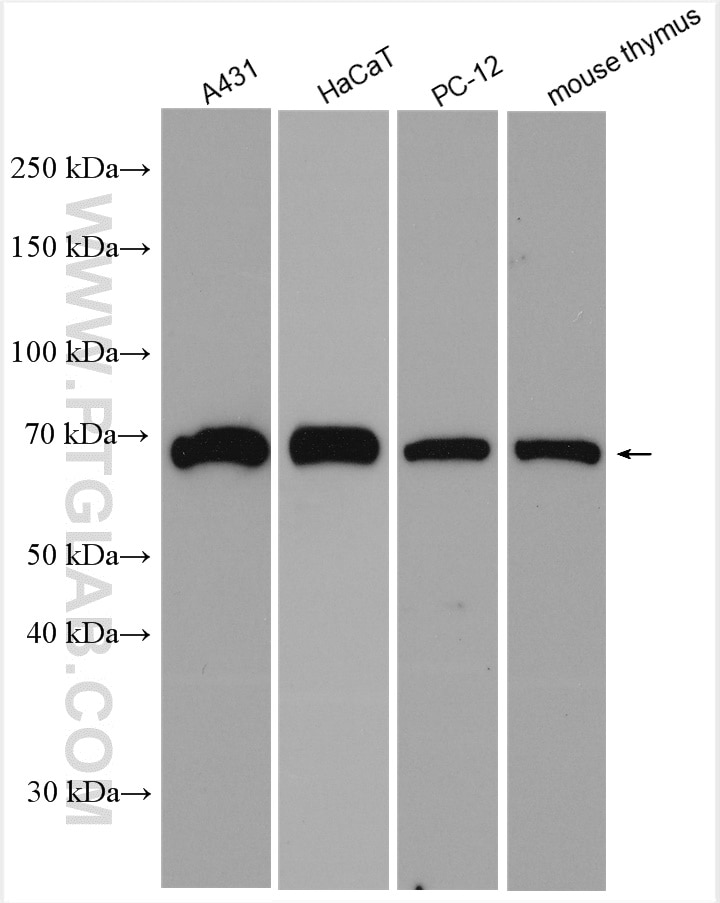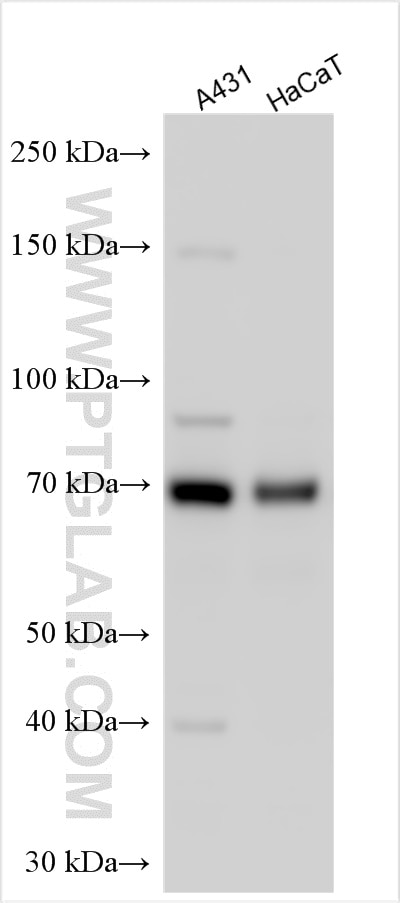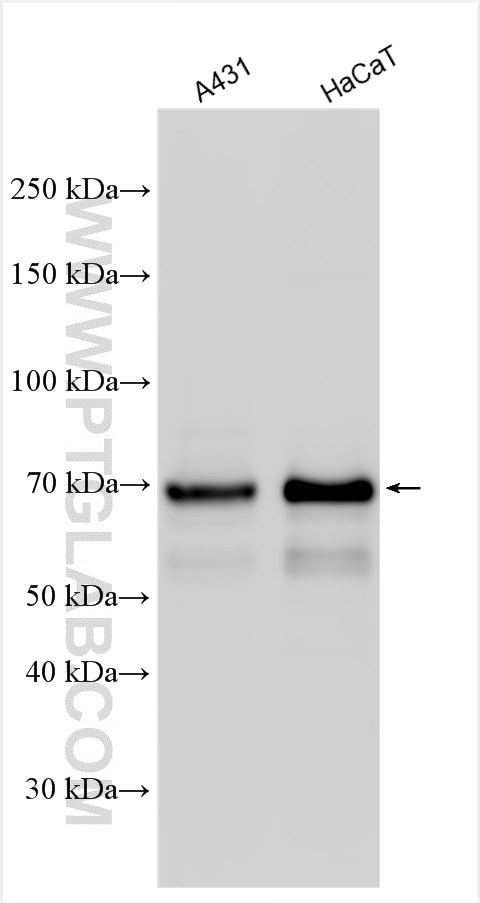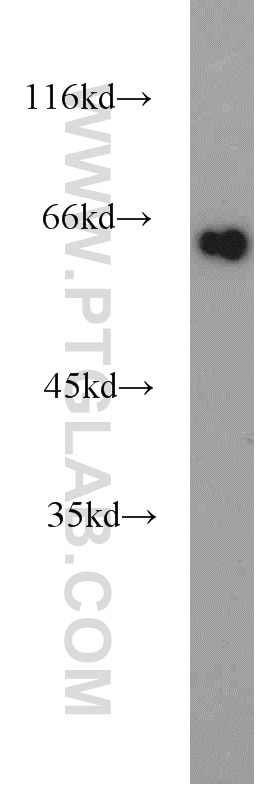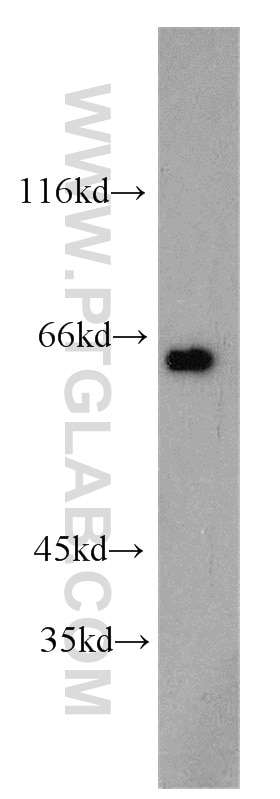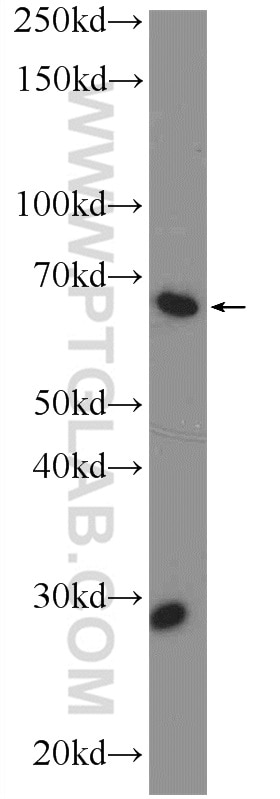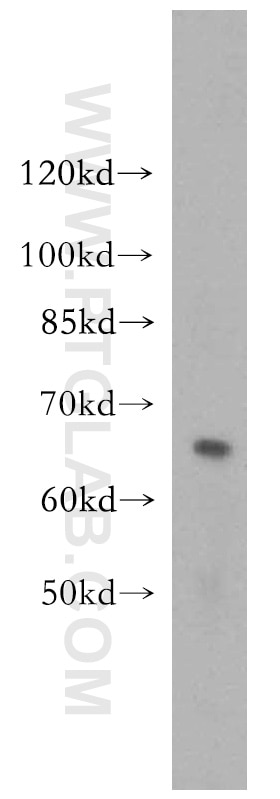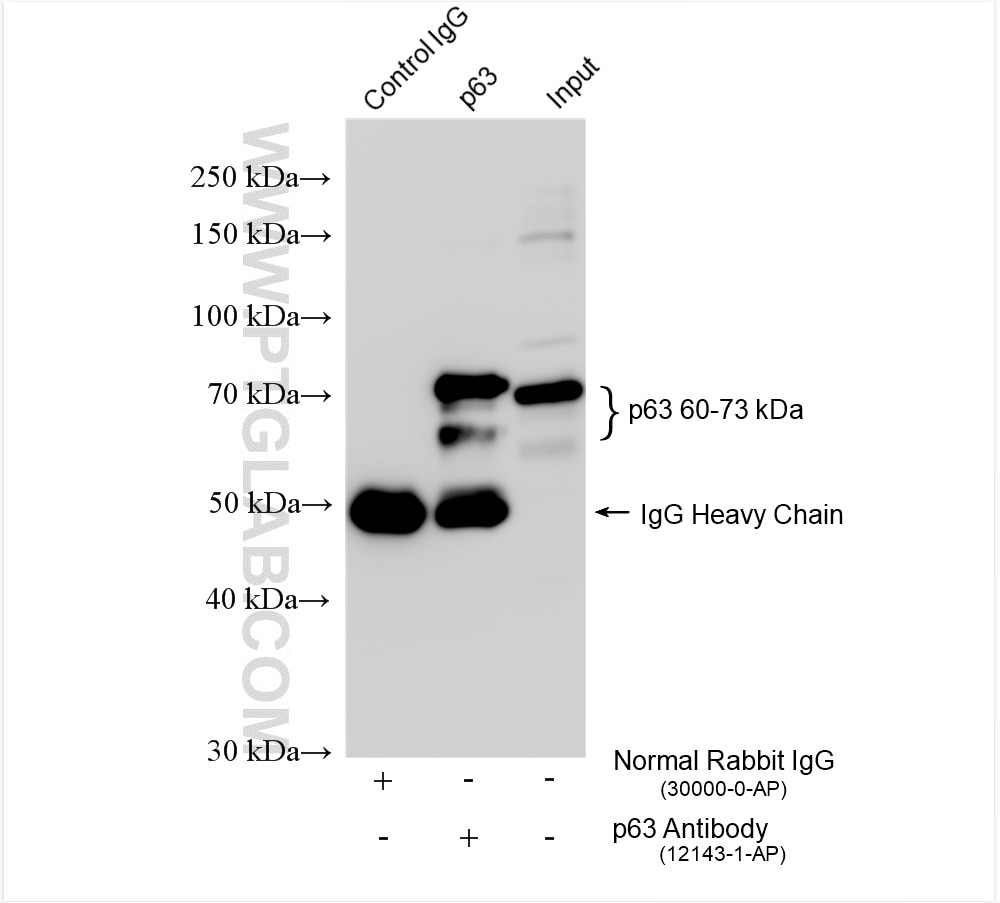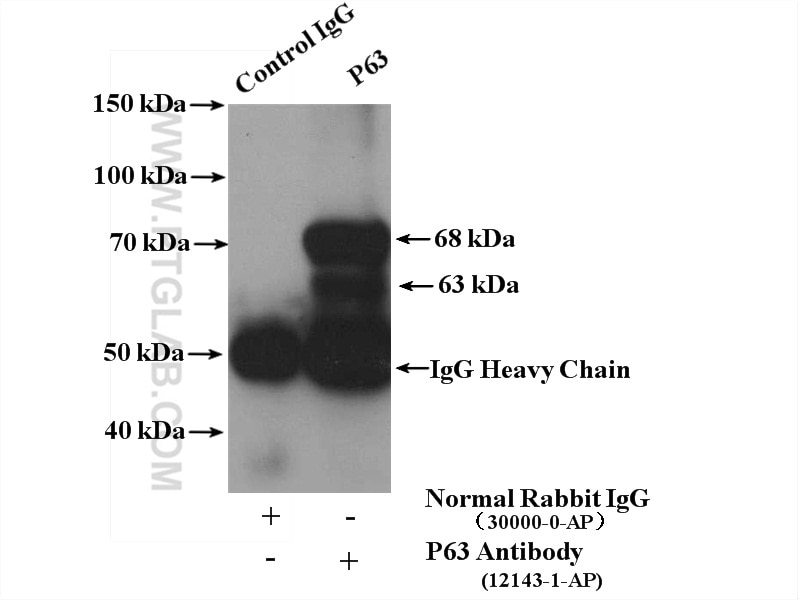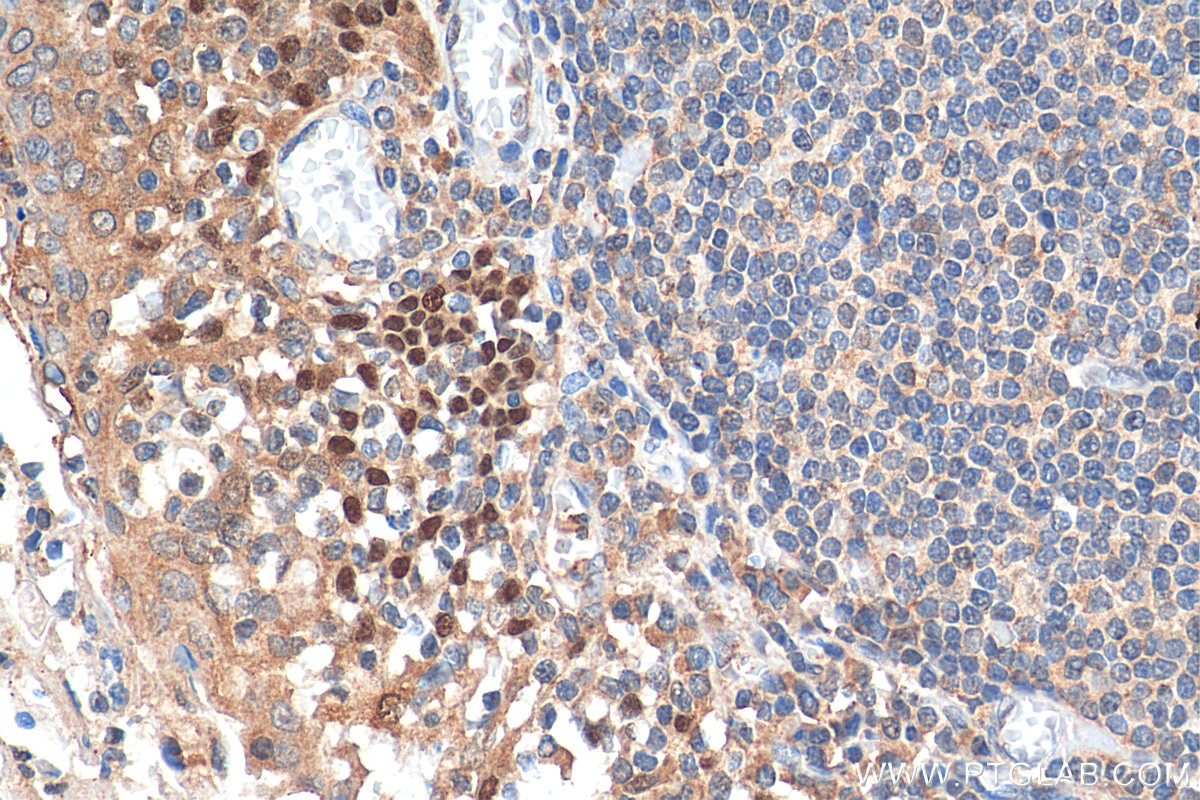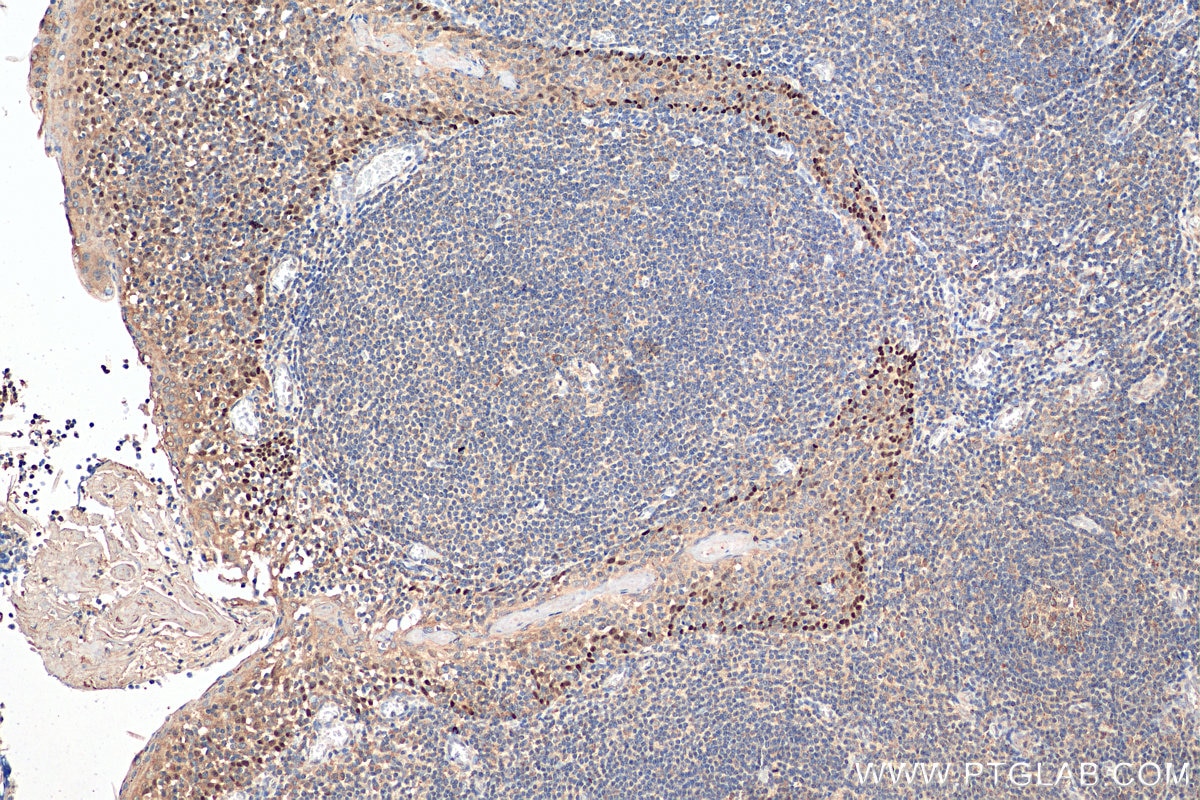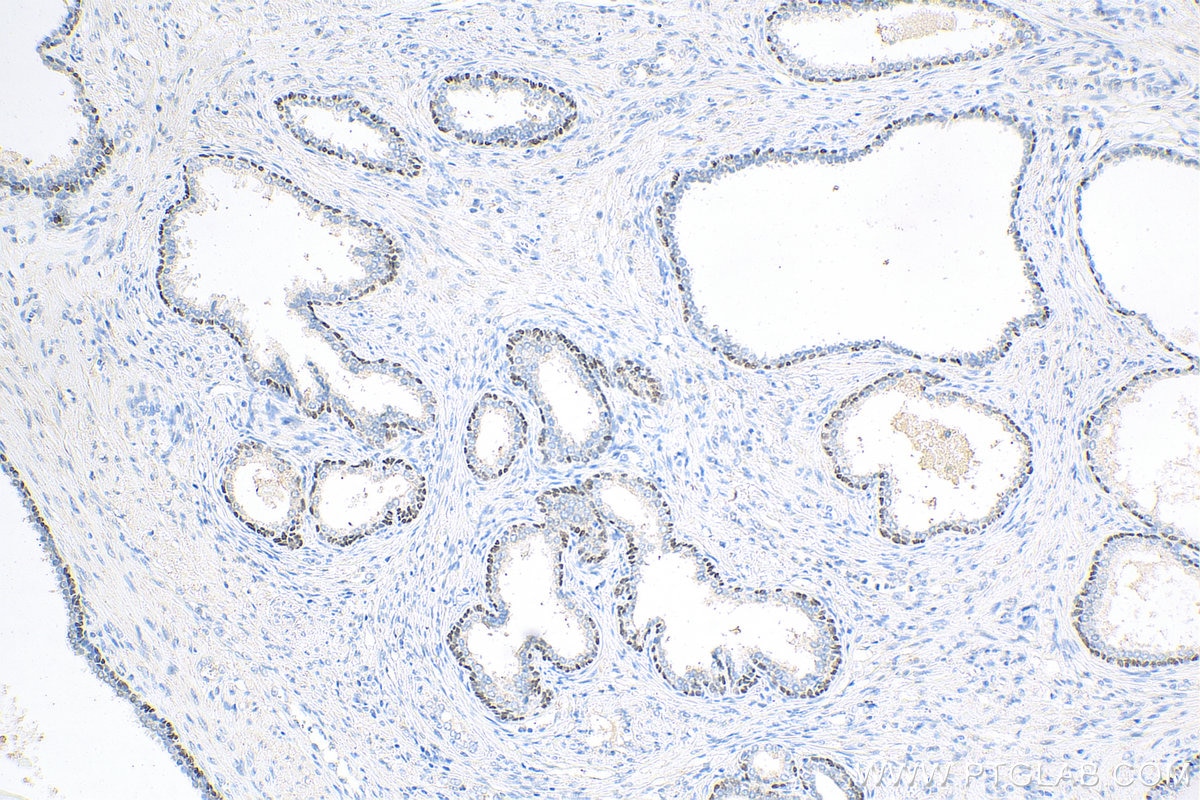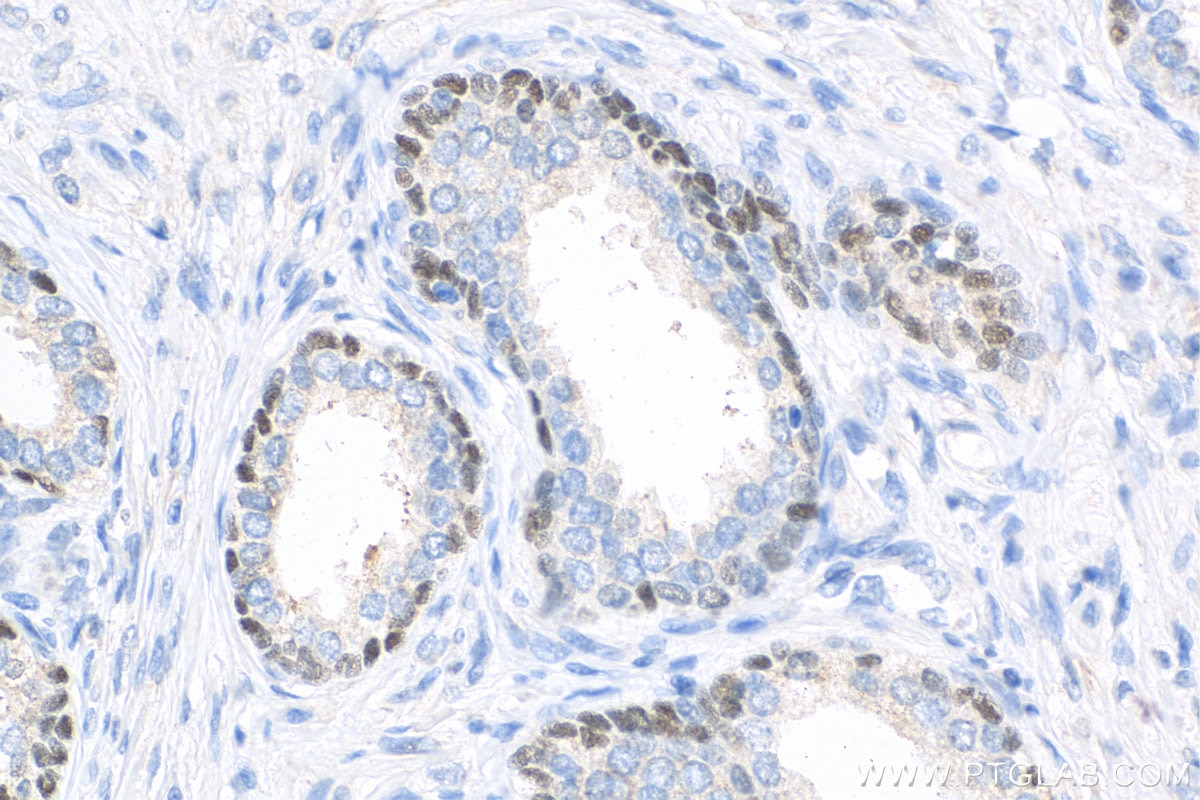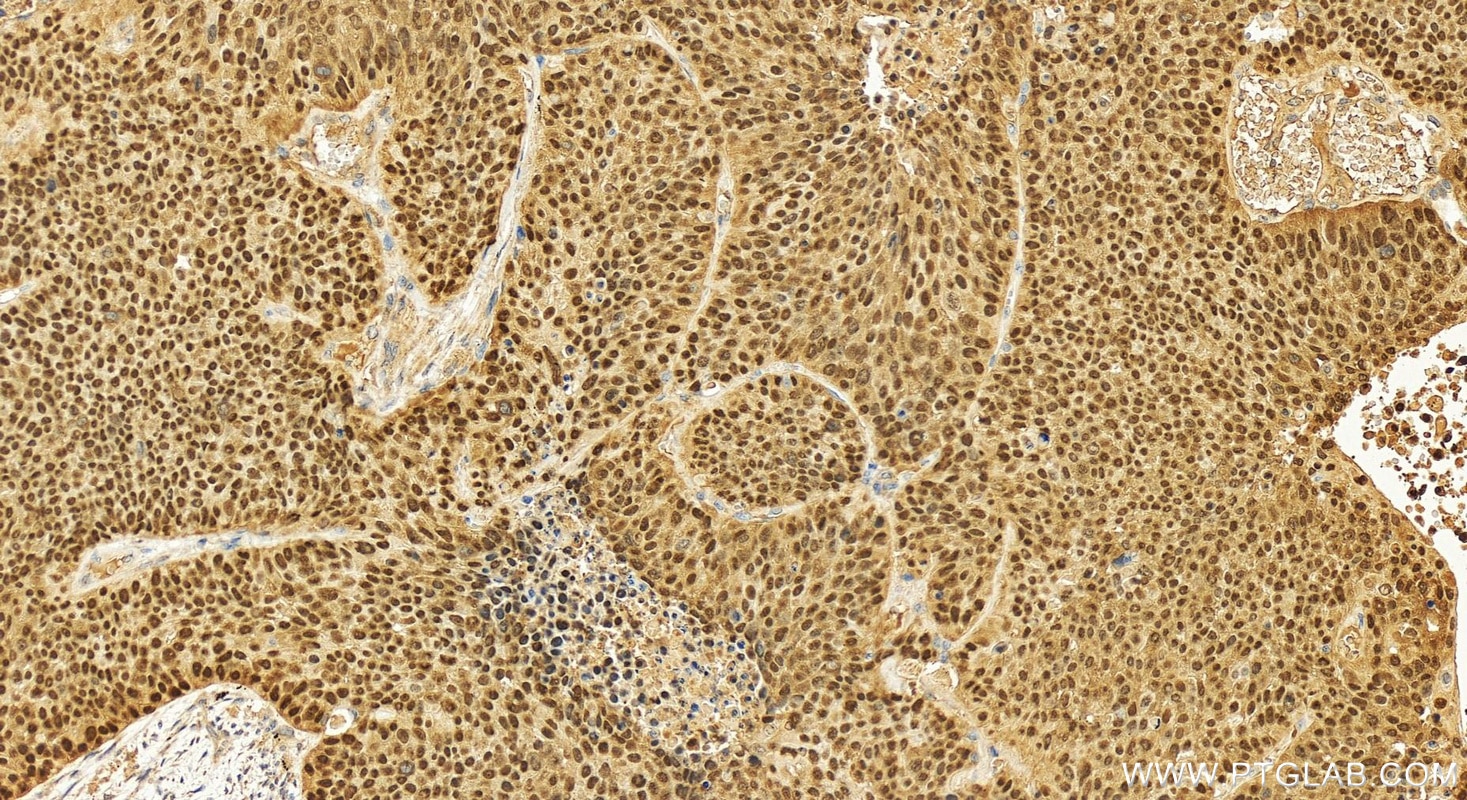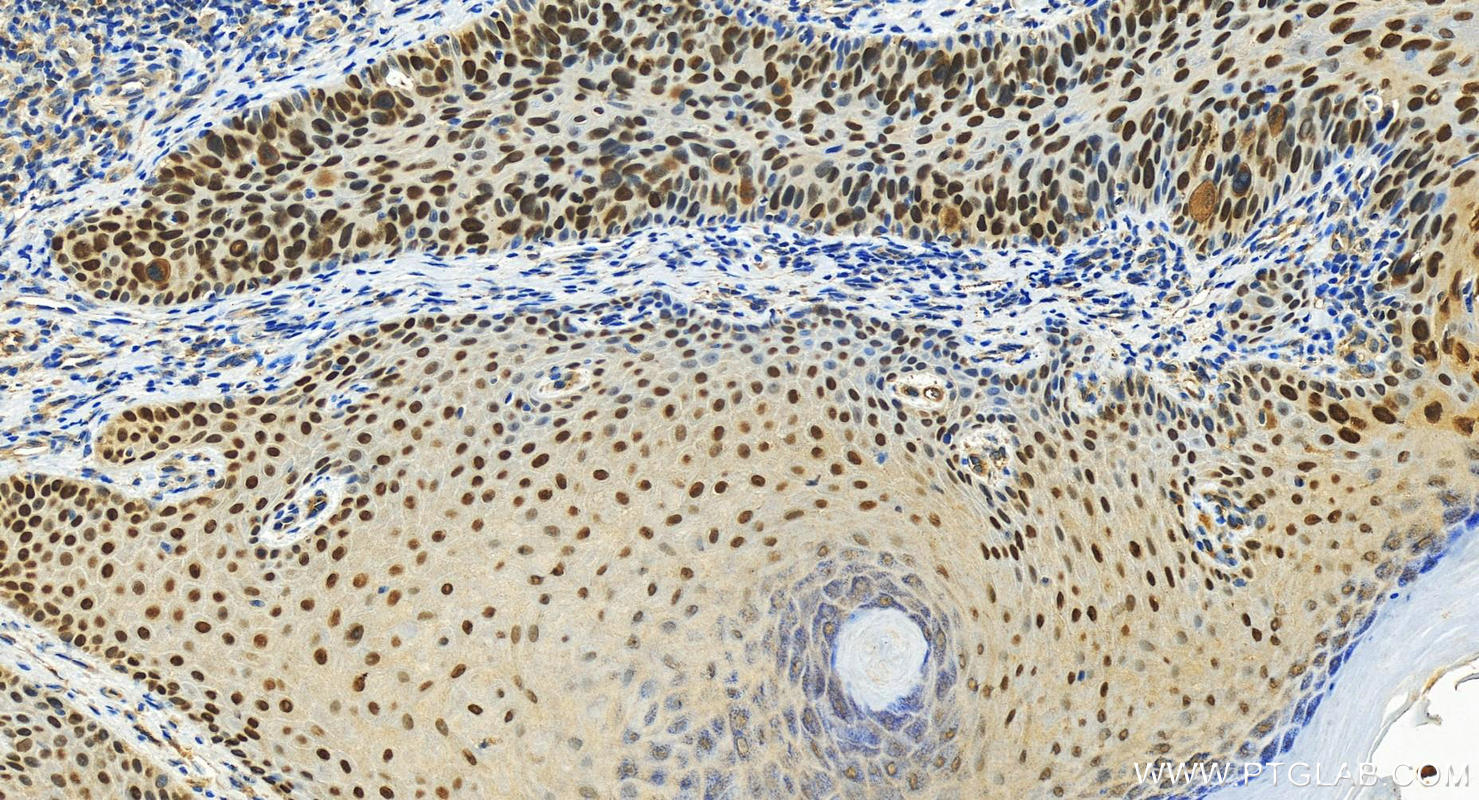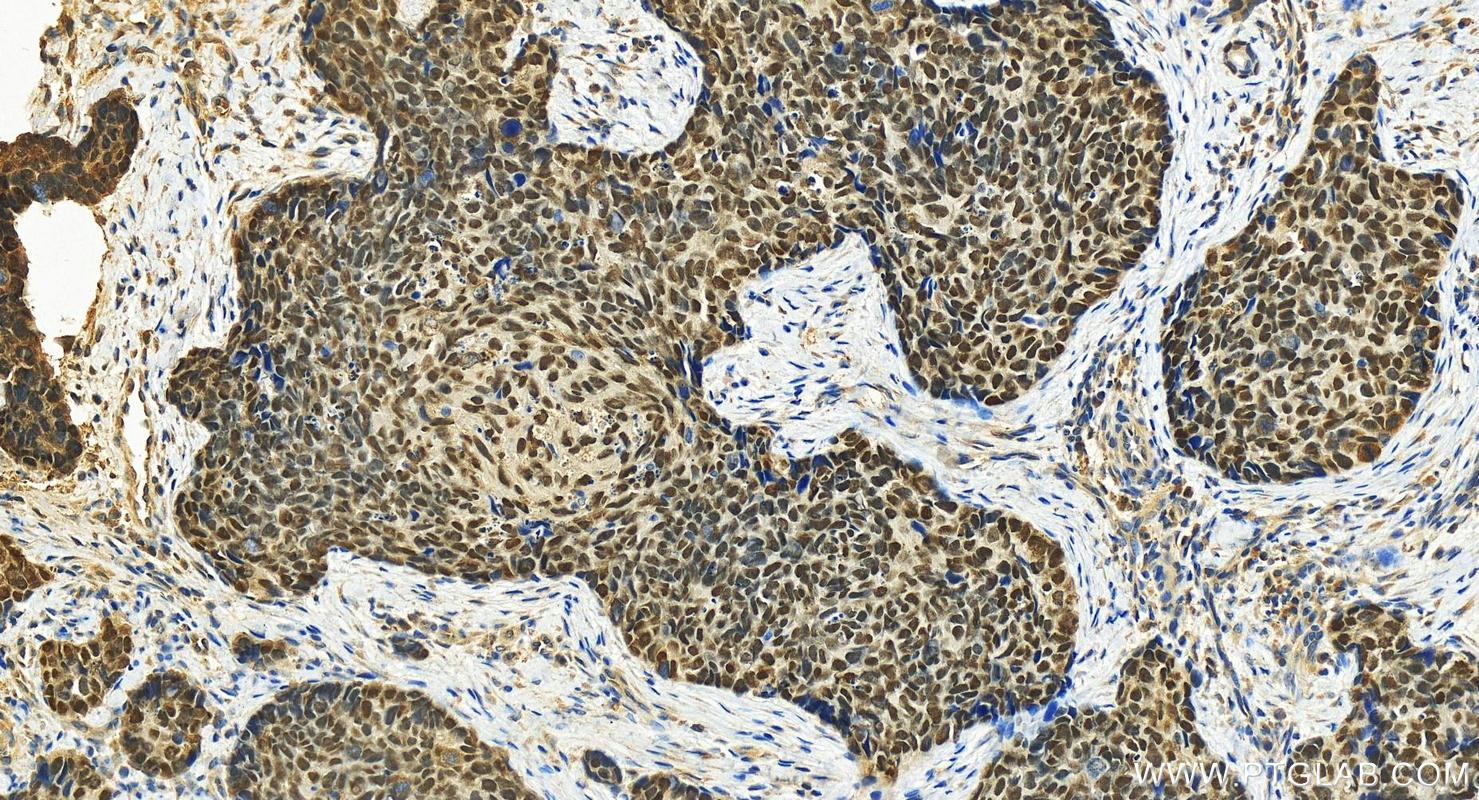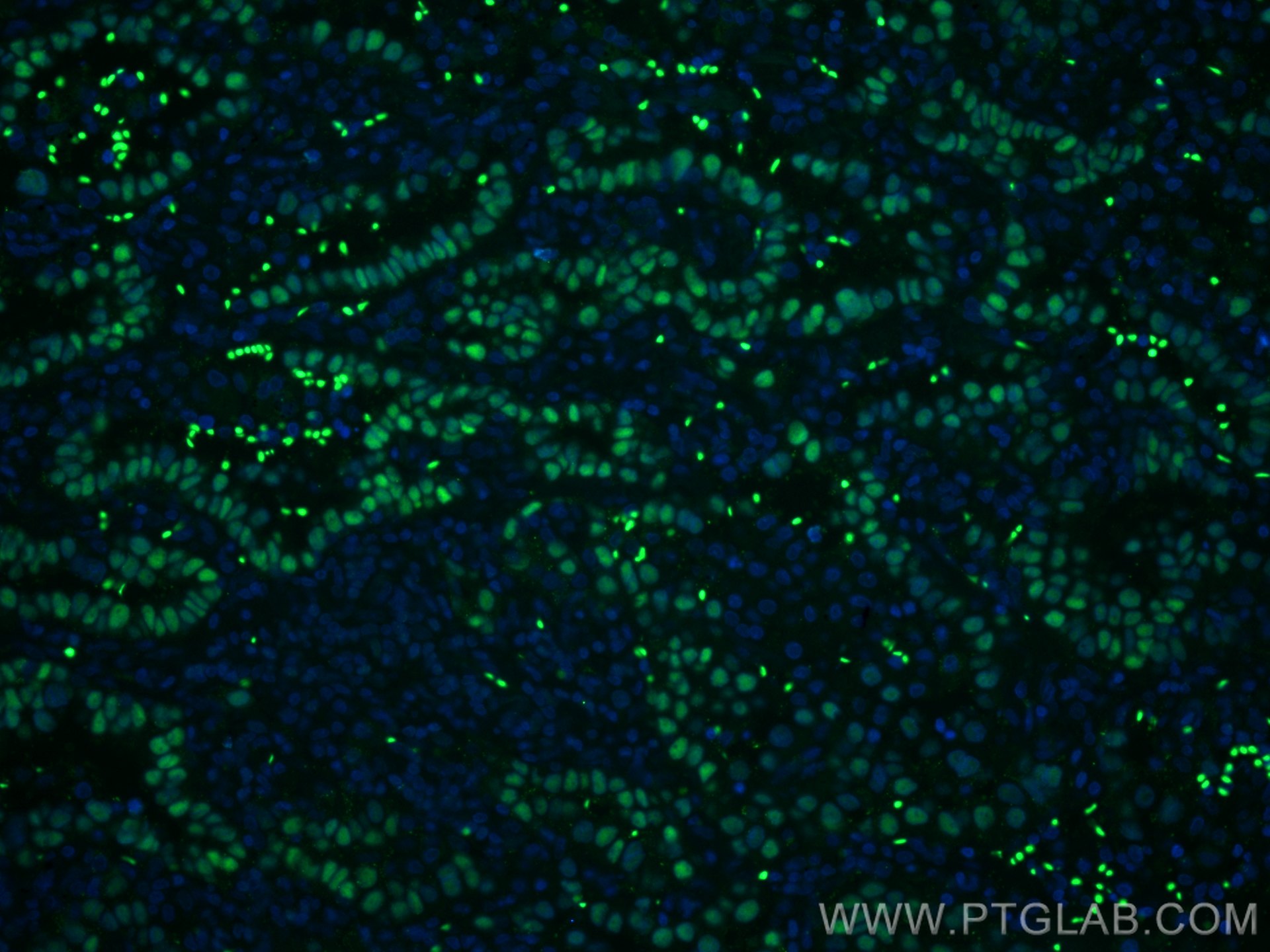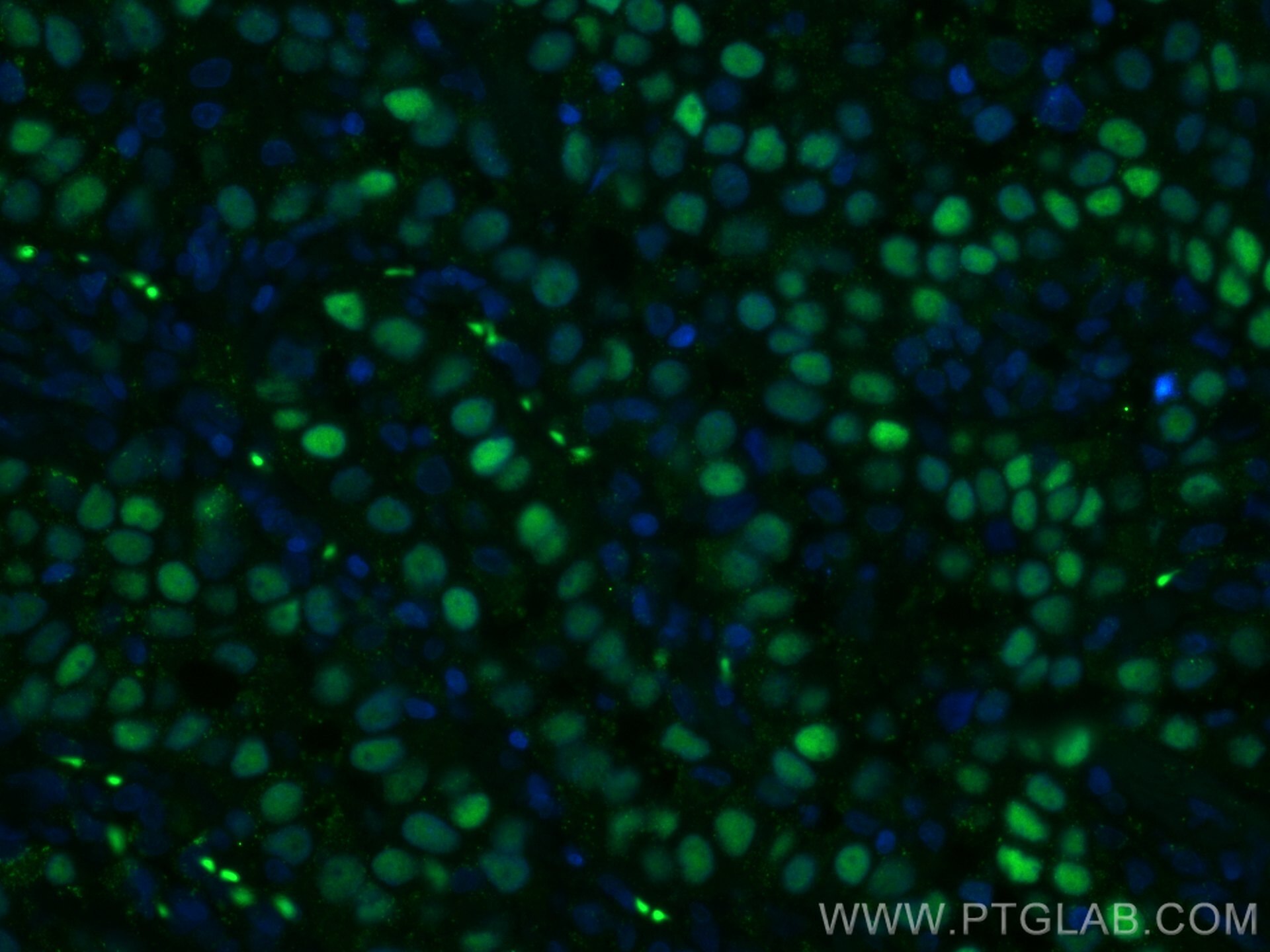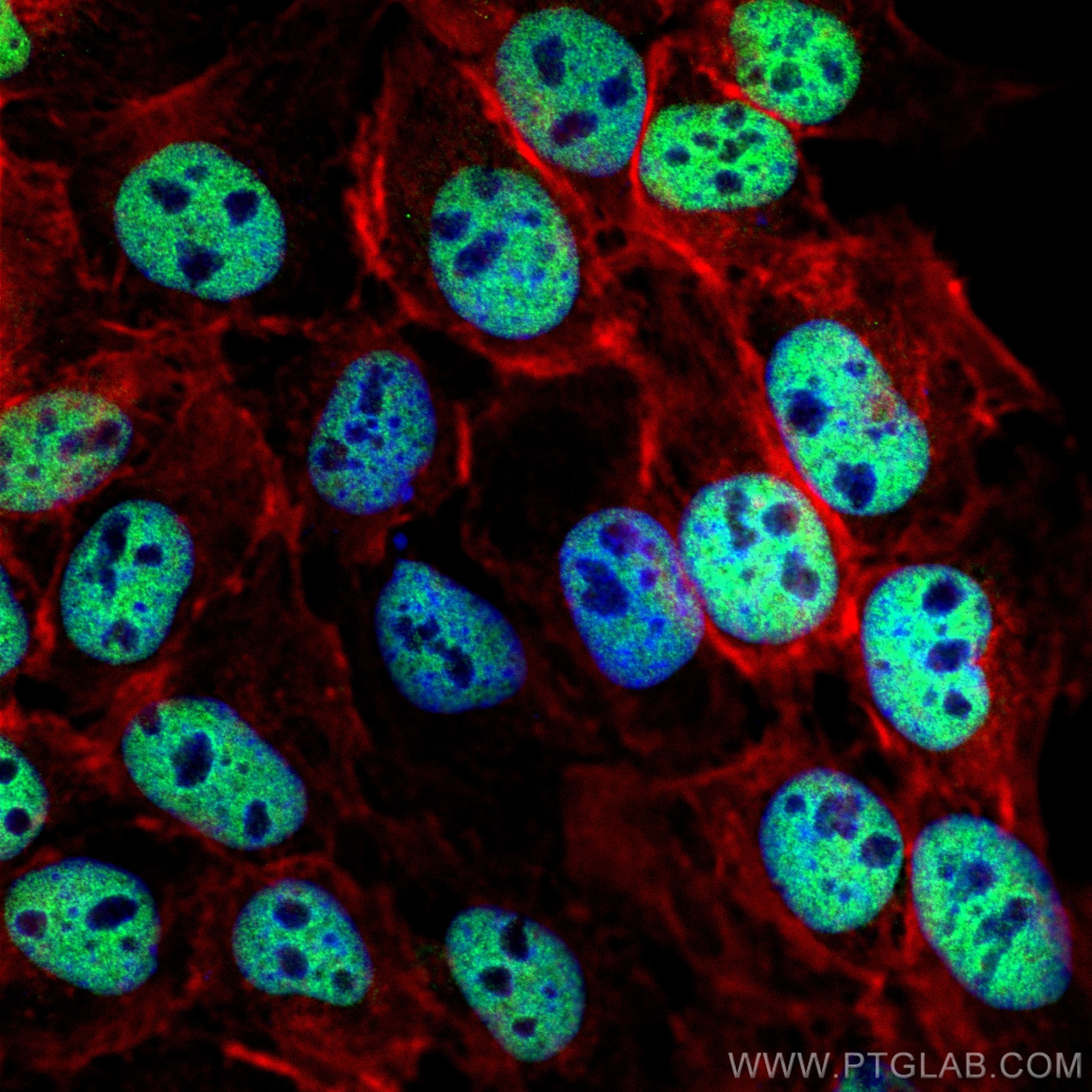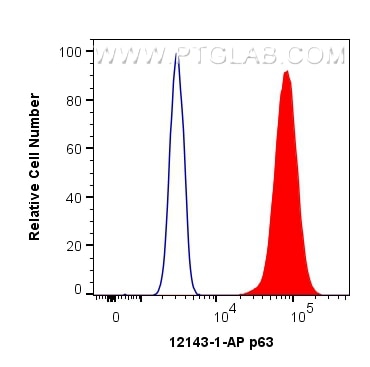- Featured Product
- KD/KO Validated
p63 Polyklonaler Antikörper
p63 Polyklonal Antikörper für WB, IHC, IF/ICC, IF-P, FC (Intra), IP, ELISA
Wirt / Isotyp
Kaninchen / IgG
Getestete Reaktivität
human, Maus, Ratte
Anwendung
WB, IHC, IF/ICC, IF-P, FC (Intra), IP, CoIP, ChIP, ELISA
Konjugation
Unkonjugiert
Kat-Nr. : 12143-1-AP
Synonyme
Geprüfte Anwendungen
| Erfolgreiche Detektion in WB | A431-Zellen, Apoptotisierte HeLa-Zellen, HaCaT-Zellen, humanes Herzgewebe, Mausherzgewebe, Maus-Thymusgewebe, PC-12-Zellen, U-937-Zellen |
| Erfolgreiche IP | A431-Zellen |
| Erfolgreiche Detektion in IHC | humanes Tonsillitisgewebe, humanes Prostatakarzinomgewebe Hinweis: Antigendemaskierung mit TE-Puffer pH 9,0 empfohlen. (*) Wahlweise kann die Antigendemaskierung auch mit Citratpuffer pH 6,0 erfolgen. |
| Erfolgreiche Detektion in IF-P | humanes Lungenkarzinomgewebe |
| Erfolgreiche Detektion in IF/ICC | A431-Zellen |
| Erfolgreiche Detektion in FC (Intra) | A431-Zellen |
Empfohlene Verdünnung
| Anwendung | Verdünnung |
|---|---|
| Western Blot (WB) | WB : 1:500-1:3000 |
| Immunpräzipitation (IP) | IP : 0.5-4.0 ug for 1.0-3.0 mg of total protein lysate |
| Immunhistochemie (IHC) | IHC : 1:200-1:800 |
| Immunfluoreszenz (IF)-P | IF-P : 1:50-1:500 |
| Immunfluoreszenz (IF)/ICC | IF/ICC : 1:500-1:2000 |
| Durchflusszytometrie (FC) (INTRA) | FC (INTRA) : 0.40 ug per 10^6 cells in a 100 µl suspension |
| It is recommended that this reagent should be titrated in each testing system to obtain optimal results. | |
| Sample-dependent, check data in validation data gallery | |
Veröffentlichte Anwendungen
| KD/KO | See 3 publications below |
| WB | See 15 publications below |
| IHC | See 14 publications below |
| IF | See 19 publications below |
| IP | See 2 publications below |
| CoIP | See 1 publications below |
| ChIP | See 1 publications below |
Produktinformation
12143-1-AP bindet in WB, IHC, IF/ICC, IF-P, FC (Intra), IP, CoIP, ChIP, ELISA p63 und zeigt Reaktivität mit human, Maus, Ratten
| Getestete Reaktivität | human, Maus, Ratte |
| In Publikationen genannte Reaktivität | human, Maus, Ratte |
| Wirt / Isotyp | Kaninchen / IgG |
| Klonalität | Polyklonal |
| Typ | Antikörper |
| Immunogen | p63 fusion protein Ag2791 |
| Vollständiger Name | tumor protein p63 |
| Berechnetes Molekulargewicht | 680 aa, 77 kDa |
| Beobachtetes Molekulargewicht | 63-68 kDa |
| GenBank-Zugangsnummer | BC039815 |
| Gene symbol | TP63 |
| Gene ID (NCBI) | 8626 |
| Konjugation | Unkonjugiert |
| Form | Liquid |
| Reinigungsmethode | Antigen-Affinitätsreinigung |
| Lagerungspuffer | PBS with 0.02% sodium azide and 50% glycerol |
| Lagerungsbedingungen | Bei -20°C lagern. Nach dem Versand ein Jahr lang stabil Aliquotieren ist bei -20oC Lagerung nicht notwendig. 20ul Größen enthalten 0,1% BSA. |
Hintergrundinformationen
TP63, also named KET, P63, P73H, P73L and TP73L, belongs to the p53 family. It is a homologue of the tumor suppressor p53 and p73 genes. It is involved in malignancy acquisition and maintenance of cells. Unlike p53, the p63 gene encodes multiple isotypes with remarkably divergent abilities to transactivate p53 reporter genes and induce apoptosis. TP63 acts as a sequence specific DNA binding transcriptional activator or repressor. TP63 has 12 isoforms with MW 40kd(P40), 50kd(P60),63kd(P63) and 73kd(P73L).
Protokolle
| PRODUKTSPEZIFISCHE PROTOKOLLE | |
|---|---|
| WB protocol for p63 antibody 12143-1-AP | Protokoll herunterladen |
| IHC protocol for p63 antibody 12143-1-AP | Protokoll herunterladenl |
| IF protocol for p63 antibody 12143-1-AP | Protokoll herunterladen |
| IP protocol for p63 antibody 12143-1-AP | Protokoll herunterladen |
| FC protocol for p63 antibody 12143-1-AP | Download protocol |
| STANDARD-PROTOKOLLE | |
|---|---|
| Klicken Sie hier, um unsere Standardprotokolle anzuzeigen |
Publikationen
| Species | Application | Title |
|---|---|---|
Nucleic Acids Res Activation of bivalent factor DLX5 cooperates with master regulator TP63 to promote squamous cell carcinoma.
| ||
Cell Rep A Wnt-induced lncRNA-DGCR5 splicing switch drives tumor-promoting inflammation in esophageal squamous cell carcinoma | ||
Oncogene TP53, CDKN2A/P16, and NFE2L2/NRF2 regulate the incidence of pure- and combined-small cell lung cancer in mice. | ||
Elife Chloride channels regulate differentiation and barrier functions of the mammalian airway. | ||
Stem Cell Res Ther Mesenchymal stromal cells promote the formation of lung cancer organoids via Kindlin-2 |
Rezensionen
The reviews below have been submitted by verified Proteintech customers who received an incentive for providing their feedback.
FH Tanusree (Verified Customer) (12-18-2019) | Product worked well in WB at 1:500 dilution
|
FH Kui (Verified Customer) (09-19-2019) | Best P63 Ab I can find so far.
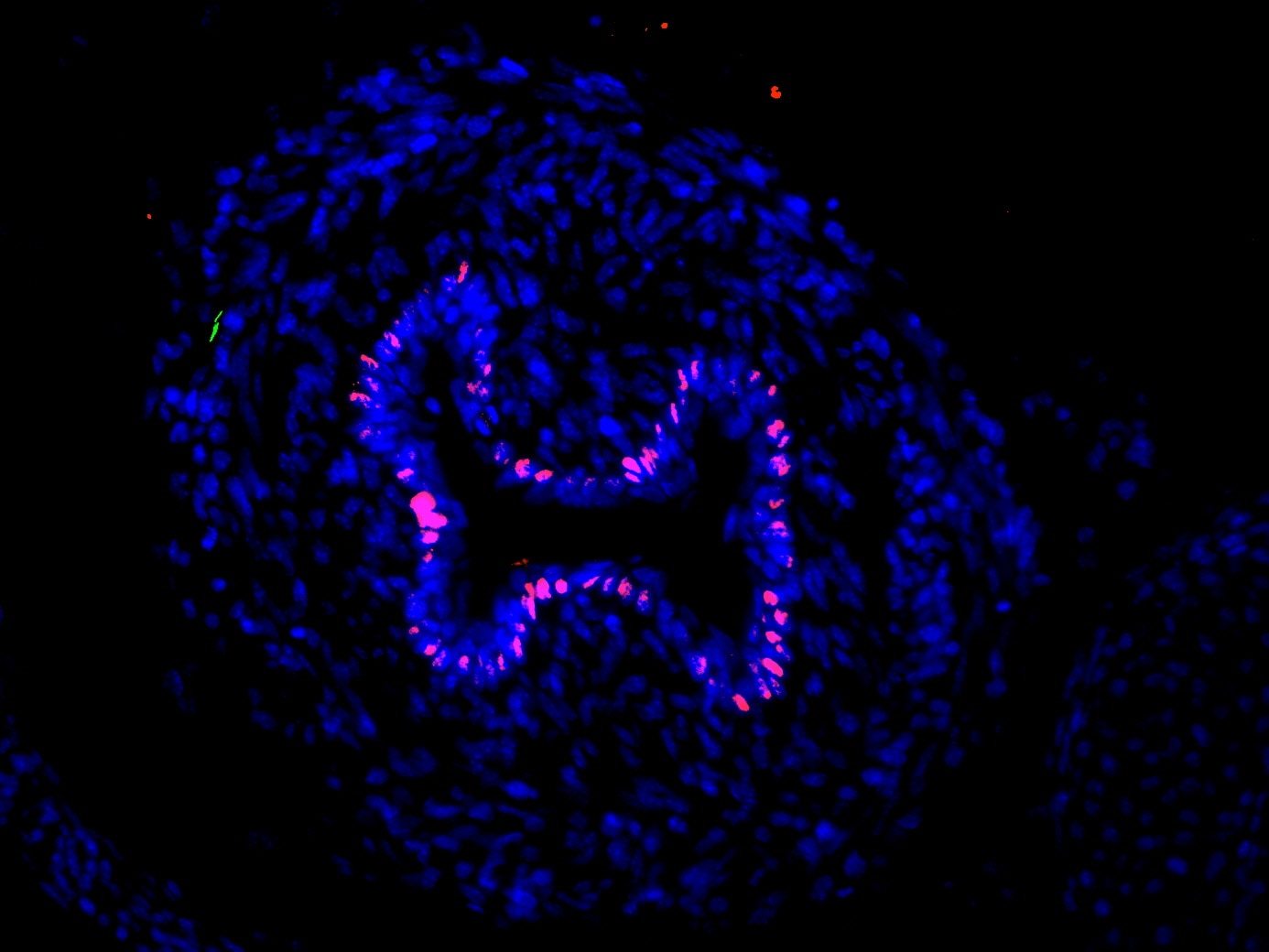 |
